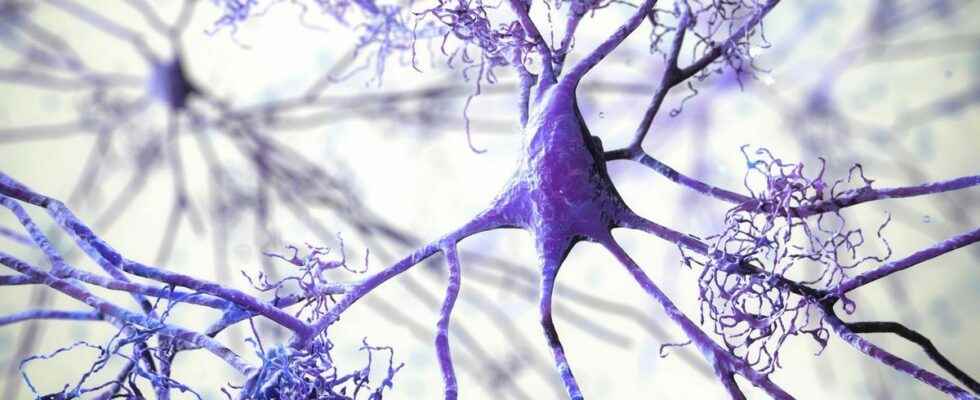Published on
Updated
Reading 2 mins.
Alzheimer’s disease has more than 50 million sufferers worldwide. However, after thirty years of intensive research, no preventive or curative treatment has emerged. What if the track followed was not the right one? This is the theory put forward by Dr. Donald Weaver, director of the Krembil Brain Institute in Toronto, Canada.
Alzheimer’s disease is characterized by the presence of plaques of beta-amyloid proteins, which clump together within the brain and gradually alter its cognitive functions and memory. Different avenues of research exist but for Donald Weaver, director of the Krembil Brain Institute in Toronto, Canada, the best would be that of autoimmune disease.
Thinking about the disease differently
“For years, scientists have focused on finding new treatments for Alzheimer’s disease by preventing the formation of brain-damaging clumps of this mysterious protein called beta-amyloid. In fact, we scientists are arguably got into an intellectual rut by focusing almost exclusively on this approach, often neglecting or even ignoring other possible explanations” writes the specialist.
For him, “Amyloid beta is actually exactly where it should be. It acts as an immunopeptide – a messenger within our immune system – so that if we have a head injury, amyloid beta fixes it. If a virus or bacteria comes, beta-amyloid is there to fight it.”
Alzheimer’s disease, an autoimmune disease?
For Dr. Weaver, Alzheimer’s disease acts like an autoimmune disease, attacking the structures of the body. In the example of a bacterial infection, the beta-amyloid protein would therefore confuse bacteria and brain cell and would attack neurons. Which would cause the symptoms of the disease.
And according to Dr. Weaver, “Concretely rethinking Alzheimer’s disease as an autoimmune disease and beta-amyloid as a normal part of our immune system would open the door to new avenues and new approaches to developing innovative therapies.”
The opinion of Dr Christophe de Jaeger, physiologist and member of the Doctissimo expert committee
For Christophe de Jaeger, “this article is relevant, however, in the face of pathologies that alter cognitive functions, we must remain modest and not rule out any leads”.
According to him, “it is already difficult to find a treatment for a pathology for which we do not yet know all the physio-pathological mechanisms. Various avenues are being studied and among them, the avenue mentioned by this researcher about the immune system is as well, and have been for many years already”.
Is it necessary to do research only in this direction then? “On the contrary, I think that Alzheimer’s disease is a syndrome and that behind these neurodegenerative attacks, there are different pathologies. For this reason, enormous research is to be put in place and carried out in all the areas to truly understand this disease one day”.
